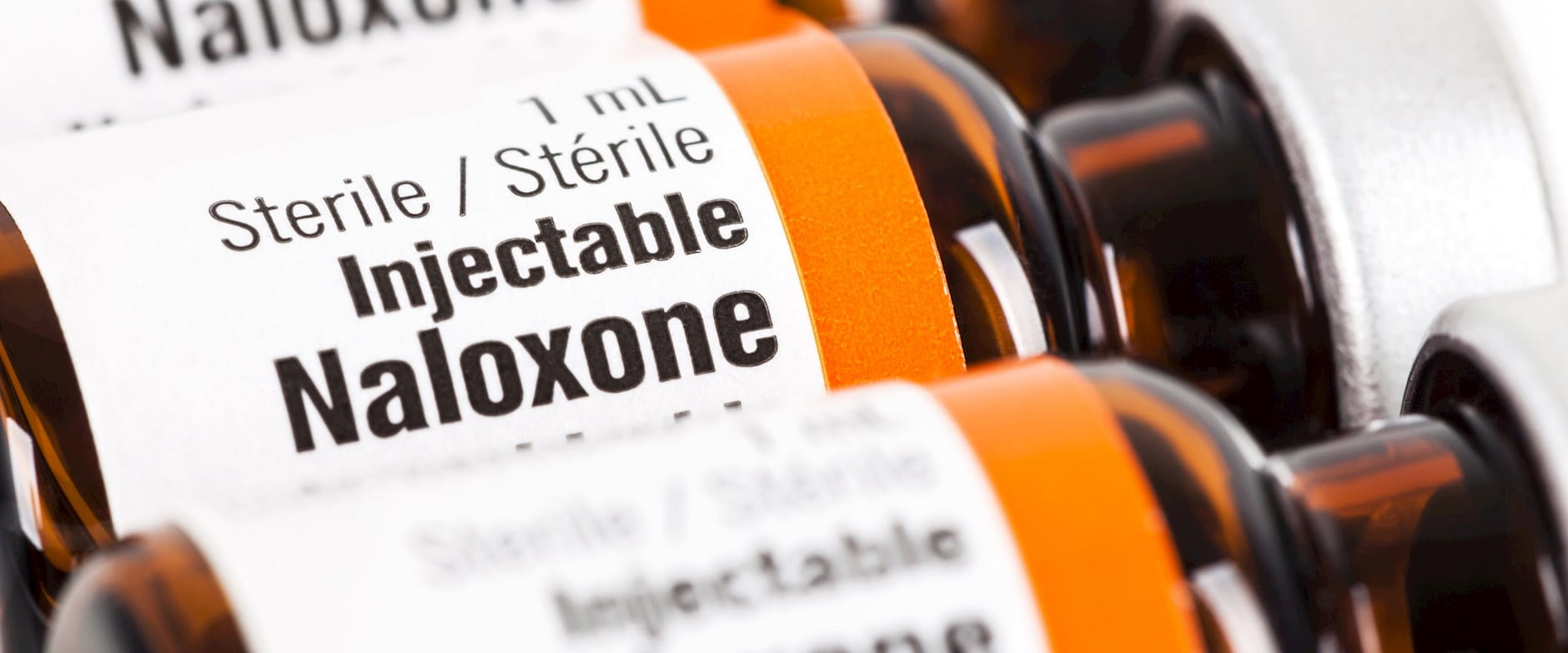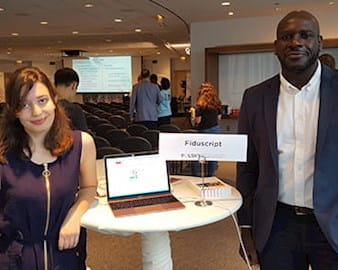
Promoting Social Innovation
The Rustandy Center’s yearlong Tarrson Fellowship helps social entrepreneurs persevere through the uncertainties of launching social ventures.
Promoting Social Innovation
A young woman walked into a pharmacy with a prescription for OxyContin, a powerful pain reliever often associated with the nation’s opioid epidemic.
At the same time, James Lott, a graduate student at the University of Chicago Harris School of Public Policy and then-pharmacist, realized the Washington pharmacy’s access to the statewide controlled substance database was temporarily down.
It wasn’t until a couple hours later—after he had approved her order on paper—that he discovered the truth: Over the course of three months, she had obtained 50 OxyContin prescriptions from 35 different doctors.
“You would never guess that she was a substance abuser,” Lott said.
That was Lott’s wake-up call to the reality of the opioid epidemic, which claimed 72,000 lives last year due to overdose.
While Lott earns his policy degree, he is working to tackle some elements of the opioid epidemic now. Earlier this year, he started Fiduscript, a digital technology company that creates sustainable solutions for substance abuse prevention.The startup’s first offering, Naloxone Exchange, will be an online marketplace that aims to increase access to Naloxone, a prescription medication that can reverse the effects of an opioid overdose.
Lott will get the chance to hone his venture at the Clinton Global Initiative University, hosted at the University of Chicago on Oct. 19-21. CGI U was founded in 2007 to engage the next generation of leaders on college campuses around the world through an annual meeting where students, university representatives, topic experts and industry leaders come together to discuss and develop innovative solutions to pressing global challenges.
Fiduscript also participated in the Polsky Accelerator, and Lott competed alongside Chicago Booth student Michael Cui and Harris students Joy Rooney and Maryiam Saifuddin in the John Edwardson, ’72, Social New Venture Challenge. The SNVC is the social impact track of the Edward L. Kaplan, ’71, New Venture Challenge, the University of Chicago’s business launch program run by Chicago Booth’s Rustandy Center for Social Sector Innovation and the Polsky Center for Entrepreneurship and Innovation.
Lott hopes to launch Naloxone Exchange in early 2019. Research has shown that stigma is a major barrier to accessing this life-saving medication, as well as addiction treatment services. With the exchange, friends and family members of opioid use disorder patients will be able to go online, purchase Naloxone and receive training on how to administer the drug—all without leaving their homes.
And the home is exactly where Naloxone is needed most, Lott said.
“More than 50 percent of drug overdoses happen at home,” he said. “Time is precious.”

Expanding the awareness and availability of Naloxone is a key part of the public health response to the opioid epidemic, according to the U.S. Surgeon General’s Office. As a former teacher of pharmaceutical law, Lott says he knows how to make that happen.
Naloxone Exchange is slated to roll out first in Texas, where the startup will partner with a pharmacy to launch distribution service in the state. A person can visit the online exchange, get a prescription, watch a training video and then receive Naloxone via mail. A patient could pay out of pocket, by credit card and (in the future) with insurance.
“We have a lot to learn from Texas,” Lott said. “We’re working hard to get this off the ground.”
From there, Lott’s team plans to expand to five more states—Illinois among them—and eventually to all 50. Fiduscript will market directly to consumers and partner with manufacturers to secure the medication. Down the line, the exchange may also work to partner with government entities supplying naloxone.
“The SNVC is a mechanism for students from across UChicago who are working to make an impact on some of the world’s most pressing social challenges,” said Robert H. Gertner, the John Edwardson Faculty Director of the Rustandy Center and Joel F. Gemunder Professor of Strategy and Finance at Chicago Booth. “Fiduscript, and its efforts to address the opioid crisis, is a great example of students leveraging that resource.”
Lott hopes Fiduscript can offer counseling and other services to those affected by addiction in the future and credits the university and its breadth of resources for helping his team get the startup off the ground.
“Getting the time allocated to work on this made all the difference,” Lott said. “There’s nothing that’s going to replace hard work in entrepreneurship."
This article originally appeared in UChicago News on October 11, 2018. If you'd like to receive updates on social impact stories, events, and research at Chicago Booth, sign up for the Rustandy Center's newsletter. Note: We want to demonstrate our commitment to your privacy. You can review Chicago Booth’s privacy notice for more information.

The Rustandy Center’s yearlong Tarrson Fellowship helps social entrepreneurs persevere through the uncertainties of launching social ventures.
Promoting Social Innovation
Rustandy Center-supported research shows viability of virtual coaching for entrepreneurs.
Social Impact Around the Globe: Alumni Work With Rwandan Entrepreneurs
Finalists will compete for at least $100,000 in cash prizes at the SNVC virtual finals event on Tuesday, June 2.
16 Teams Advance in the 2020 Social New Venture Challenge